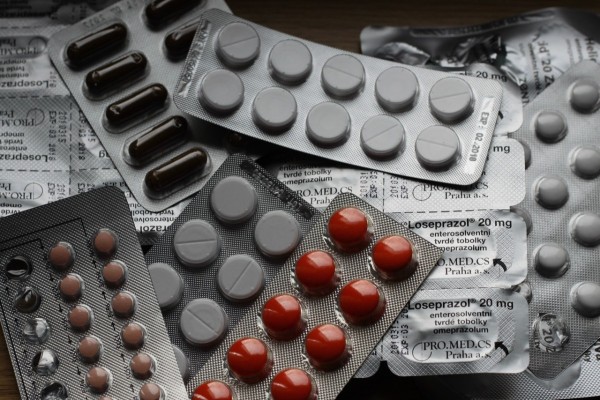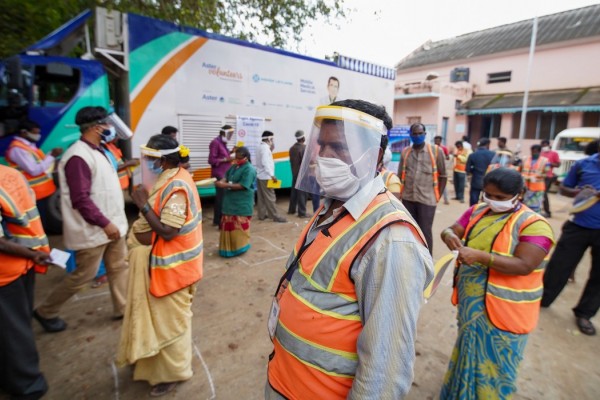Ottawa should nationalize the Medicago vaccine plant
This would provide Canada with something it hasn’t had since the mid-1980s: a domestic vaccine production facility

The Québec provincial government is seeking a buyer for Medicago Inc., the producer of the plant-based Covifenz vaccine, which was approved by Health Canada in early 2022 for adults aged 18 to 64. Photo from Adobe Stock.
Why worry about the potential negative effects of health care privatization in Canada—if the Medicago vaccine plant saga is any indication, the privatization of public funds is already well under way, to disastrous effect.
The governments of Canada and Québec were caught off guard by the recent decision of Mitsubishi Chemical Group to close down its Medicago subsidiary. Medicago is a Québec City based company that produces Covifenz, the only made-in-Canada COVID vaccine and the first vaccine authorized for domestic production by Health Canada in 20 years. Mitsubishi Chemical stated that changing trends in the world market for COVID vaccines have made further commercialization of their product economically unviable.
That matter notwithstanding, the federal government sank 173 million of taxpayer dollars into the company back in October of 2020—money that was supposed to help expand their production facility and acquire up to 76 million doses of the vaccine. In a statement to Global News, the company said that the commercialization of the vaccine will be discontinued entirely, and that the development of the new headquarters and production facility will also be curtailed.
Remarkably, the federal government doesn’t seem to be overly concerned about losing $173 million. Innovation, Science and Industry Minister François-Philippe Champagne said that retrieving the money wasn’t the government’s primary concern. By contrast, Québec Economy Minister Pierre Fitzgibbon stated that his government is actively seeking a new buyer for the plant, confirming that both the governments of Québec and Canada would be willing to provide additional funding for a willing buyer. In 2015, Ottawa and the Québec provincial government invested $60 million and $8 million respectively to build Medicago’s vaccine plant.
Despite the fact that this facility is already under construction, that the government desperately wants to save the jobs and the accrued intellectual capital, and that Pfizer has already announced it is increasing the cost of its vaccines, no one in government is prepared to do the obvious: nationalize the Medicago vaccine plant.
There are more than a few reasons to do so, not least of which is that Medicago’s expertise and techniques are as unique as they are efficient and inexpensive.
Pharmaceutical grade proteins have traditionally been cultivated in hen’s eggs or cell cultures, two processes that are time consuming and costly. Medicago developed a method to reliably cultivate pharmaceutical grade proteins in plants, specifically an easy to grow relative of the tobacco plant. Its process reduced protein production time from months to weeks, and could further be scaled up simply by growing more plants.
When the Trudeau government announced the funding agreement, the vaccine had not yet been approved for domestic use, though its advocates were nonetheless confident. Speaking at the announcement, then Minister of Innovation, Science and Industry, Navdeep Bains, said the money would “support breakthrough Canadian technology to advance the development of a vaccine for COVID-19 and support biomanufacturing capacity for a made-in-Canada solution.”
Unlike mRNA vaccines, including those produced by Pfizer and Moderna, Medicago’s vaccine is not only comparatively inexpensive, but also doesn’t have their extreme cold storage requirements, meaning they’re far easier to transport and store in parts of the world where specialist equipment is unavailable. Ergo, not only did Medicago provide a cost-effective domestic COVID vaccine solution, the vaccine could have been widely exported to the developing world and used to replenish what Canada withdrew from the COVAX program (which supports the procurement, distribution and delivery of COVID-19 vaccines for low- and middle-income countries).
When the vaccine was approved for domestic use by Health Canada in February of 2022, Champagne said that it would “reverse the 40-year decline faced by Canada’s biomanufacturing sector.”
Though the Covifenz vaccine was approved for domestic use by Health Canada in February of 2022, the World Health Organization rejected it about a month later, citing a 21 percent share in Medicago owned by American tobacco giant Philip Morris. The WHO’s rationale was that it didn’t want a tobacco company profiting off of a COVID vaccine. Fair enough. At the time, Canadian government officials said they were working to resolve the issue. Philip Morris subsequently sold their share in the company, but it doesn’t seem as though the WHO changed its mind on Covifenz. At the time of the WHO decision cabinet ministers, including Harjit Sajjan and then Innovation Minister François-Philippe Champagne, said they would work with the WHO to figure out a solution to the problem. This does not seem to have occurred.
It would be quite innovative for the government to simply acquire the facility they already paid for and keep its workforce on the payroll. This would provide Canada with something it hasn’t had since the mid-1980s: a domestic vaccine production facility. Not only could Canada then produce its own COVID vaccine, it could further see if the same plant-based vaccine production process could be used to create other essential vaccines. Evidence already suggests that the Medicago process could be used to create the same influenza vaccines Canadians are encouraged to get annually—so there’s already potential for expansion.
Most importantly, this particular COVID vaccine is ideally suited for use in the developing world, which has so far had great difficulty accessing COVID vaccines because the so-called ‘first world’ (Canada included) has been hoarding them and has further refused to democratize vaccine patents. Hundreds of thousands of people died needlessly because of the greed of the wealthy—it’s a story as old as time.
The global marketplace for COVID vaccines may be changing, but just because a private company can’t make a killing off of publicly-funded vaccines doesn’t mean Canadians should swallow the loss on an over $200 million public investment. We need those vaccines, as do the poor of the world. Canada could earn a significant amount of international goodwill by buying this plant and pumping out cheap COVID vaccines (to say nothing of owning the means of production of an innovative new product that could help us weather future pandemics and secure a cheap domestic supply of essential vaccines). But with Justin Trudeau firmly in the pocket of Big Pharma, this is highly unlikely.
This should be a far bigger scandal, and unfortunately, there is no one left in Parliament to fight this battle. Keep it in mind the next time Trudeau says he’s a champion of health care, because when it comes to privatizing public money, he’s already well ahead of even the most retrograde provincial premiers.
Taylor C. Noakes is an independent journalist and public historian from Montréal. In addition to writing regularly for Canadian Dimension, he contributes to the Toronto Star, Jacobin, Cult MTL, The Maple, DeSmog, and the Montréal Review of Books, among others. He holds an MA in Public History from Duquesne University and has worked on the restoration of playwright August Wilson’s childhood home. He is also a frequent contributor to the Canadian Encyclopedia, and once debated several Canadian prime ministers at once on matters of foreign policy.










